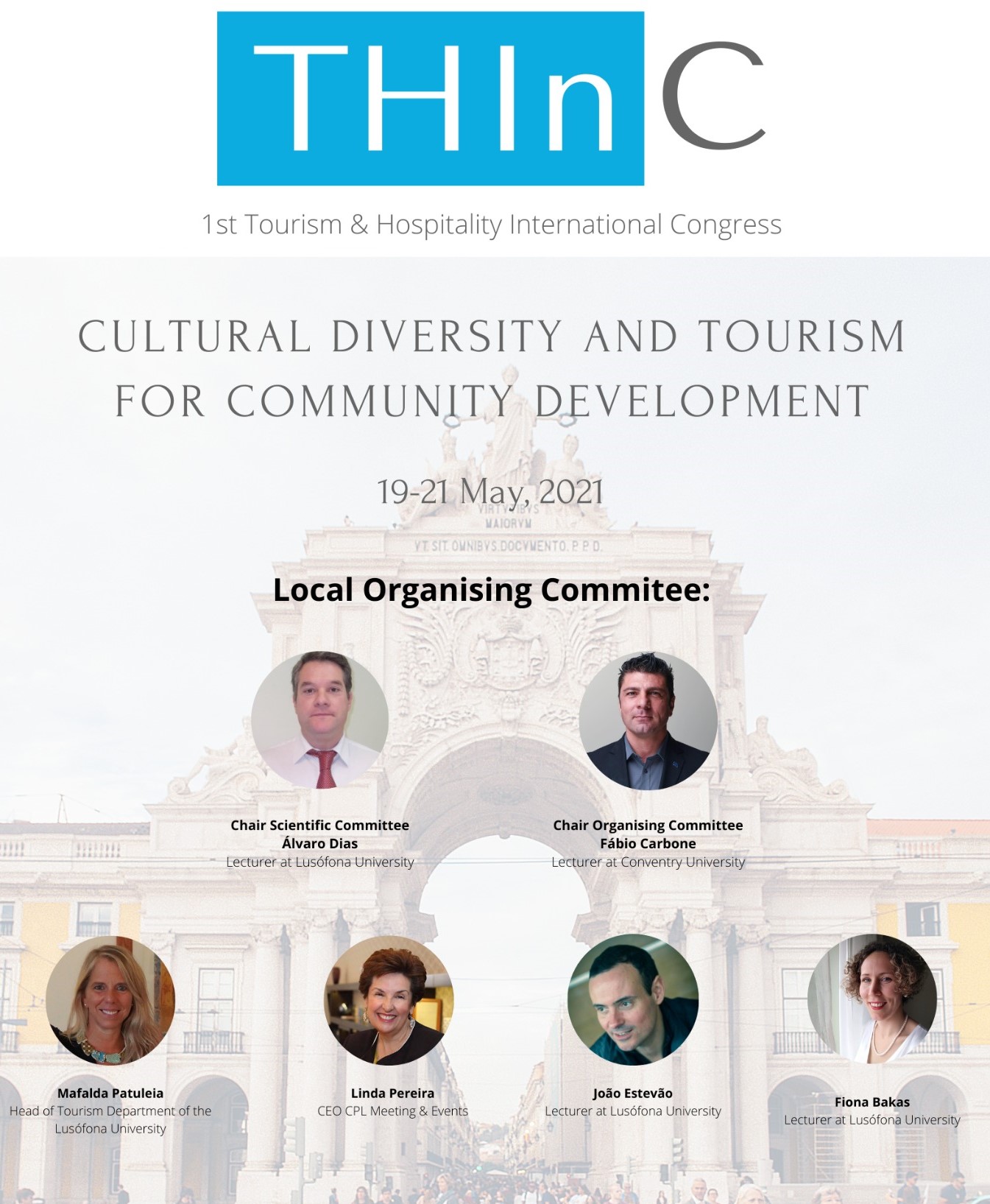
The first edition of the Tourism and Hospitality International Conference (THInC) will focus on “CULTURAL DIVERSITY AND TOURISM FOR COMMUNITY DEVELOPMENT”. The event is organized by the Lusófona University (Portugal) and the Coventry University (United Kingdom), in collaboration with 'CEO CPL Meetings & Events', to be held on 2021, May 19th-21st. The main aim of the event will be that of promoting international debate on issues relating to cultural diversity and its link to tourism development. According to Fabio Carbone, Chair of the organizing committee, "we aim to give an impulse to the scientific research in this field and, on the other side, to raise awareness about the need for models of cooperation between all stakeholders to safeguard and enhance cultural diversity and facilitate the exchange of knowledge through innovative tourism practices based on cultural diversity and the SDGs' principles".
Cultural diversity, as a source of exchange, innovation and creativity, is as necessary as services or infrastructure for the development of tourism destination. Tourism thus became not only one of the fastest growing sectors, but also an activity with the potential of promoting social cohesion and understanding at global level, as well as a powerful creative force that can contribute to mutual cultural enrichment, to the consolidation of the culture of peace and to the prosperity of people. In this sense, and considering the general principles contained in the conventions and the international declarations such as the Declaration on Cultural Diversity (2001); UNESCO Conventions for the Safeguarding of the Cultural and Natural Tangible (1972) and intangible (2003) Heritage; the UNWTO Code of Ethics for Tourism and the principles underlining by the Sustainable Development Goals in the UN Agenda 2030. Scholars, practitioners and students from all over the world will exchange information both on academic advances and innovative practices.
